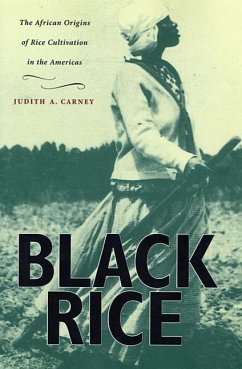Few Americans identify slavery with the cultivation of rice, yet rice was a major plantation crop during the first three centuries of settlement in the Americas. Rice accompanied African slaves across the Middle Passage throughout the New World to Brazil, the Caribbean, and the southern United States. By the middle of the eighteenth century, rice plantations in South Carolina and the black slaves who worked them had created one of the most profitable economies in the world.< P>
Rice was a major plantation crop during the first 300 years of settlement in the Americas. It accompanied slaves across the Middle Passage throughout the New World to Brazil, the Caribbean, and the southern U.S. Carney reveals how racism has shaped our historical memory and neglected this critical African contribution to the making of the Americas.
Hinweis: Dieser Artikel kann nur an eine deutsche Lieferadresse ausgeliefert werden.
Rice was a major plantation crop during the first 300 years of settlement in the Americas. It accompanied slaves across the Middle Passage throughout the New World to Brazil, the Caribbean, and the southern U.S. Carney reveals how racism has shaped our historical memory and neglected this critical African contribution to the making of the Americas.
Hinweis: Dieser Artikel kann nur an eine deutsche Lieferadresse ausgeliefert werden.








